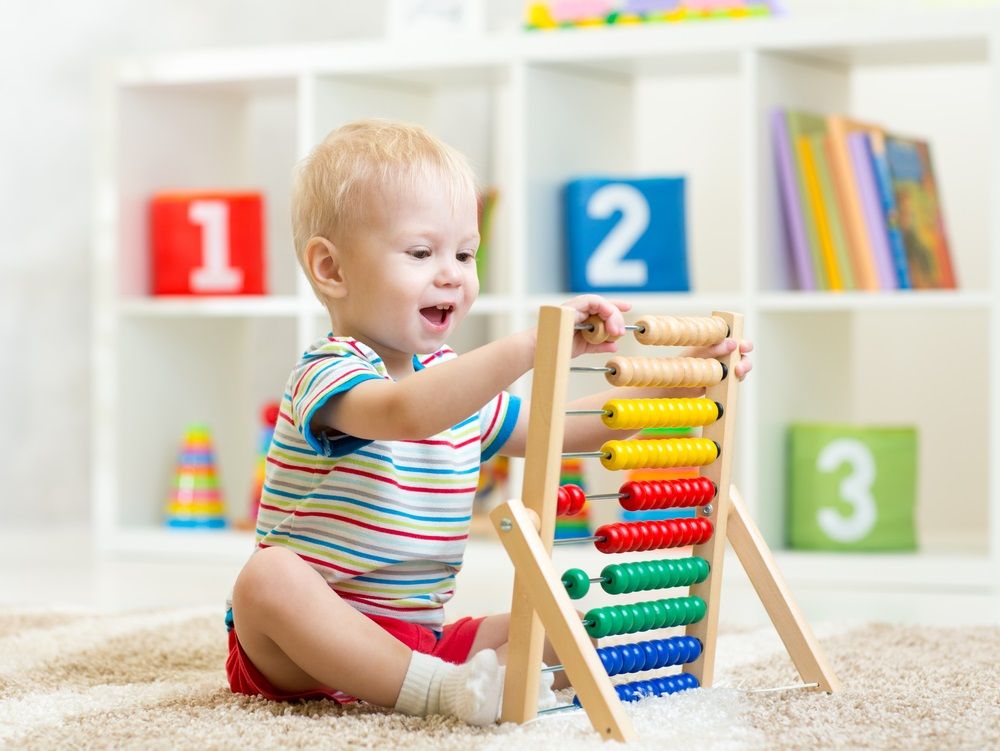
Welcome to a comprehensive guide on finding the best early childhood education programs for infants. As parents, we all want the best for our children, especially their education and development. The first few years of a child’s life are critical for shaping their cognitive, emotional, and social abilities. Therefore, choosing the right early learning program is of utmost importance. This article will explore various early childhood education programs and strategies that can provide your infants with a solid educational foundation. From enriching activities to nurturing environments, we’ve got it all covered.
Contents
- 1 The Importance of Early Childhood Education Programs
- 2 Exploring the Best Early Childhood Education Programs
- 3 FAQ
- 3.1 At what age should my infant start an early learning program?
- 3.2 How do I choose the right program for my infant?
- 3.3 Is Montessori education suitable for all infants?
- 3.4 Are enrichment classes necessary for infants?
- 3.5 What role does parent-child interaction play in early learning?
- 3.6 How can I support my infant's learning at home?
- 4 Conclusion
The Importance of Early Childhood Education Programs
Before we delve into specific early childhood education programs, let’s understand why early learning is essential for infants.
Setting the Stage for Lifelong Learning
Early learning experiences lay the groundwork for a child’s attitude toward education. Engaging in supportive activities can ignite a lifelong love for learning. It’s like planting the seeds of curiosity that will grow into a forest of knowledge as your child grows. These early experiences are the building blocks of their entire educational journey.
Cognitive Development
Infants’ brains are like sponges, absorbing information rapidly. Early childhood education programs stimulate cognitive development, enhancing problem-solving skills and language acquisition. Imagine your baby’s brain as a bustling workshop, with every interaction and activity contributing to constructing neural pathways. These connections will be the basis for their future understanding of the world.
Social and Emotional Growth
Interacting with peers and caregivers in structured settings fosters social skills and emotional intelligence, which are crucial for future relationships and success. Early childhood education programs provide a safe space for your infant to explore social dynamics, understand emotions, and learn to communicate effectively. These skills are the foundation for building healthy relationships throughout life.
School Readiness
Quality early childhood education programs prepare children for formal schooling by introducing basic concepts, fine motor skills, and the ability to follow instructions. Think of it as the training wheels on a bicycle; they provide the necessary support and balance for a smooth transition to more structured learning environments. When your child enters school, they will already have a head start regarding academic and behavioral readiness.
Exploring the Best Early Childhood Education Programs
Montessori Method
The Montessori Method emphasizes self-directed learning in a prepared environment. It encourages independence, exploration, and hands-on experiences, making it a popular choice for many parents. Montessori classrooms are carefully designed to be child-centered, offering a range of materials and activities that allow infants to choose their learning path. This approach stimulates cognitive development and nurtures a sense of autonomy and responsibility from an early age.
Waldorf Education
Waldorf programs focus on holistic development, nurturing creativity, imagination, and a connection to nature. These early childhood education programs often integrate art, music, and movement into daily activities. In a Waldorf classroom, you’ll find an emphasis on imaginative play, storytelling, and a deep appreciation for the arts. This approach recognizes that children are not just intellectual beings but also emotional and spiritual ones, and it seeks to nourish all aspects of their being.
Reggio Emilia Approach
Reggio Emilia programs prioritize the child’s interests and curiosities, allowing them to guide their learning journey. Teachers act as facilitators, promoting self-expression and problem-solving. One of the unique aspects of this approach is its use of documentation, where teachers and children document their learning experiences. This documentation serves as a valuable tool for reflection and further exploration. It’s like creating a scrapbook of your child’s intellectual adventures.
High-Quality Daycare Centers
Reputable daycare centers offer structured routines, early education, and social interaction. Look for centers that prioritize trained staff and low child-to-teacher ratios. High-quality daycare centers provide a safe and nurturing environment where your infant can explore and interact with others. They often follow age-appropriate curricula and provide daily routines that promote consistency and learning.
Parent-Child Interaction
Your involvement as a parent is invaluable. Engaging with your infant through activities like reading, singing, and playing contributes significantly to their development. Your interactions create a solid emotional bond, essential for your child’s sense of security and well-being. By talking, singing, and playing with your baby, you’re not just having fun but also building the foundation for language development, cognitive skills, and emotional resilience.
Enrichment Classes
Consider enrolling your infant in enrichment classes such as music, art, or baby yoga. These classes provide exposure to new experiences and can be enjoyable bonding moments. Enrichment classes offer a structured environment for your child to explore their interests and talents. Whether it’s creating art, moving to music, or practicing yoga poses, these activities enhance their sensory experiences and contribute to their overall development.
Play-Based Learning
Infants learn through play. Choose toys and games that stimulate their senses and encourage exploration, creativity, and problem-solving. Play-based learning allows your child to discover the world at their own pace. It fosters curiosity, resilience, and a sense of joy in exploration. As you watch your infant engage with toys and activities, you’ll witness their growing understanding of cause and effect, spatial relationships, and the physical world around them.
FAQ
At what age should my infant start an early learning program?
Infants can benefit from early learning experiences as young as six months. However, the ideal age can vary based on your child’s readiness and family’s needs. There’s no one-size-fits-all answer, so it’s essential to consider your child’s individual development.
How do I choose the right program for my infant?
Choosing the right program involves considering your child’s personality, your educational philosophy, and the program’s philosophy. Visit potential programs, talk to teachers, and seek recommendations from other parents. It’s a decision that should align with your family’s values and your child’s unique needs.
Is Montessori education suitable for all infants?
Montessori education can benefit most children but may only fit some families. Evaluating whether the Montessori approach aligns with your parenting values and your child’s learning style is essential. Visiting a Montessori school and talking to parents who have chosen this approach can provide valuable insights.
Are enrichment classes necessary for infants?
Enrichment classes are optional, but they can be beneficial for exposing your child to new experiences and activities. These classes often focus on specific areas such as music, art, or physical development. While unnecessary, they can be enjoyable and enriching for you and your baby.
What role does parent-child interaction play in early learning?
Parent-child interaction is crucial in early learning. It provides emotional security, language development, and a strong foundation for future learning. When you engage with your baby through talking, singing, and playing, you nurture their cognitive development and strengthen their bond.
How can I support my infant's learning at home?
Supporting your infant’s learning at home is a beautiful way to enhance their development. Read to your baby, engage in sensory play, sing songs, and provide a safe and stimulating environment. These simple activities can profoundly impact your child’s cognitive and social development. Your home can become a place of exploration, discovery, and learning.
Conclusion
Selecting the best early learning program for your infant is a significant decision that can shape their future. Whether you opt for Montessori, Waldorf, or any other approach, providing a nurturing and stimulating environment is critical. Remember that your involvement as a parent is invaluable in fostering your child’s development. By considering your child’s unique needs and interests, you can make an informed choice that sets them on a path to lifelong learning and success.
Explore Deecyda Childcare and Learning Center’s exceptional Early Childhood Education Programs: Providing your child with a nurturing and enriching foundation for a lifetime of learning whether you need a daycare in Irvine or daycare in Newport Beach. Enroll today and give your child the best start in education!

